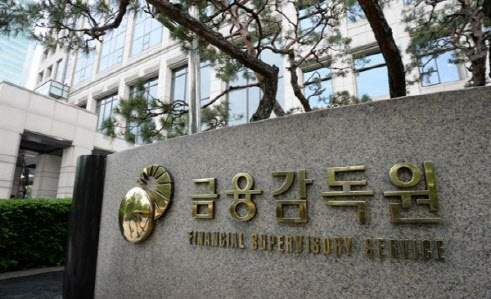|
[이데일리 이승현 문승관 장순원 기자] The Financial Supervisory Service, which raised controversy over the poor supervision of private equity funds such as Lime and Optimus, eventually avoided redesignation of public institutions. Instead, the government proposed the FSS to implement conditions such as expansion of metrics and additional reductions in higher ranks in the management performance evaluation.
On the 29th, the Ministry of Strategy and Finance opened a public institution steering committee presided by Second Vice Minister Ahn Il-hwan, and newly designated 12 institutions, including the Institute of Construction Technology Education and the Institute of Architectural Space, as public institutions. The FSS was excluded from the new designation target. The Financial Supervisory Service is in a position that “we will do our best to respect the opinions of the KOTRA and consult with relevant ministries and labor unions.
The Financial Supervisory Service was appointed to other public institutions in 2007, but it was lifted in 2009, two years later, and has been maintained until now. Prior to this, the Financial Services Commission, a competent ministry, announced its opposition to the Financial Supervisory Service’s redesignation of a public institution ahead of the decision. The Financial Services Commission explained the reason that “the financial supervisory budget, etc. are under the control of the Financial Services Commission, so it is not profitable to designate a public institution.”
On this day, the Gongwoon Committee held an in-depth discussion on whether the FSS was designated as a public institution. Last year, when the FSS’s poor oversight of private equity arose, voices from the politics that re-designation of public institutions were necessary to strengthen management. Deputy Prime Minister Hong Nam-ki also said that he would decide whether to re-designate a public institution in consideration of whether the reservation conditions were fulfilled.
As a result of checking the status of the FSS’s implementation of the existing reservation conditions, the Gongwoon Committee evaluated that they were generally performing normally. The Gongun Committee decided to postpone re-designation of public institutions, but impose stricter conditions in view of the recent cases of poor supervision and the independence of financial supervisory enforcement.
Conditional redefinition reservations have been repeated annually in recent years. In January 2018, the Ministry of Knowledge Economy proposed four conditions: △ eradication of employment corruption △ management disclosure at the level of public institutions △ strict management evaluation △ resolution of inefficient organizational operations. In January 2019, the Gongwoon Committee accepted and delayed re-designation of the Financial Supervisory Service’s plan to “reduce the senior position to 35% within the next five years”.
This time, the Gongwoon Committee raised the weight of the Financial Supervisory Service’s management performance evaluation metrics from the previous 30% to 40%. In addition, if any misconduct was identified in the evaluation process, the incentive was returned. This is a measure to improve the fairness and objectivity of management performance evaluation.
In addition, the survey on customer satisfaction for the Financial Supervisory Service was conducted annually at the level of public institutions, and the results were reflected in management evaluation. Currently, the Financial Supervisory Service selects some customers and conducts irregular surveys.
In addition, the Gongwoon Committee has further reduced the top ranks of the Financial Supervisory Service and devised a plan to improve the efficiency of organizational operation, such as reduction of overseas offices.
In this regard, the Financial Services Commission plans to report to the Gongun Committee a detailed implementation plan for the strengthened reservation conditions in the first half of this year.
The Financial Supervisory Service is an atmosphere where one sighs. However, it has been reported that some voices of dissatisfaction.
The FSS is currently reducing the top ranks below 35% of the total. However, in addition to this, the higher ranks were further reduced. In addition, it is said that there is no direct relationship between the fund’s insolvency supervision problem and the return of performance pay. The issue of incentive payment is a matter of agreement with the union.
The Financial Supervisory Service responded that the conditions proposed by the Kongwoon Committee were generally high in intensity.
The Gongun Committee decided to closely check the implementation plan and performance results of the new reservation conditions so that practical management and supervision of the FSS would be strengthened. The Gongwoon Committee said, “If the implementation results are insufficient in the future, we plan to actively review the designation of public institutions.”
Meanwhile, according to the resolution of this public institution designation proposal, a total of 350 institutions have been confirmed as management targets under the Public Transport Act.

